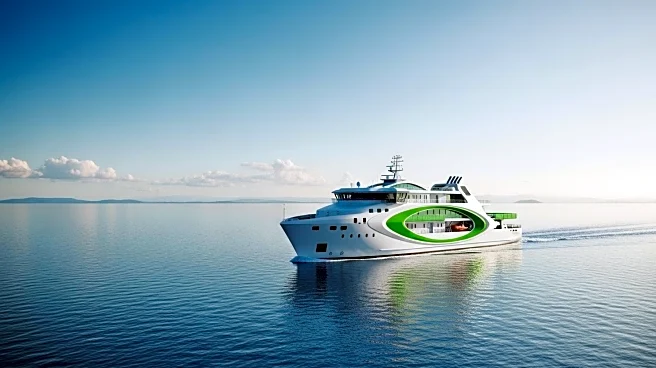What's Happening?
The European Union is contemplating a 10-year delay in implementing taxes on aviation and shipping fuels, as part of a broader energy tax reform aimed at addressing climate change. The proposal, initially introduced by the European Commission in 2021, seeks to gradually tax CO2-emitting fuels within the EU. However, resistance from countries with significant shipping and tourism sectors has led to discussions about maintaining the current tax exemptions for a decade. The exemption is intended to preserve the competitive position of EU companies, while small aircraft and private pleasure craft may face taxes sooner.
Why It's Important?
The potential delay in taxing shipping fuels is crucial as it highlights the challenges in balancing economic interests with environmental goals. The exemption could maintain the competitiveness of EU shipping companies but may hinder efforts to promote cleaner fuels and reduce emissions. Climate campaigners have long advocated for tax changes to incentivize cleaner energy sources, and this delay could impact the EU's ability to meet its climate targets. The decision reflects the complexities of achieving unanimous agreement among EU member states on tax policy changes.
What's Next?
EU negotiators are set to discuss the compromise proposal in Brussels, with hopes of reaching a deal by November. The outcome of these discussions will determine the future of EU energy tax policy and its alignment with climate objectives. If the exemption is approved, it may lead to further debates on how to effectively transition to cleaner fuels without compromising economic competitiveness. The decision could also influence global shipping practices and environmental policies.











